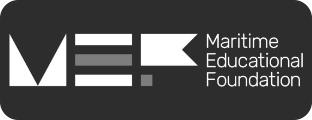The Marine Society’s Coming Ashore programme has been a resounding success since its inception more than a year ago. The scheme takes seafarers in roles at sea and guides them through their transitional phase to a shore side role in the sector. As one of the oldest maritime charities in the UK providing education, training and financial assistance to seafarers, has built up a highly experienced cohort of mentors who will be paired with a plethora of mentees comprising a variety of backgrounds, skillsets and aspirations.
Elsewhere, the Workboat Association have created a new initiative titled the Norman Finlay Development Scheme, with the aim being to support talent development ashore within the Small Commercial Vessel (SCV) sector.
Norman Finlay MBE was to known to many as the ‘Grandfather’ of the Workboat industry. Following a career at sea and then as Superintendent of a dredger fleet, Norman became involved with workboats early in his career and went on to become one of the main driving forces behind the establishment and development of the UK Workboat sector of the Merchant Navy in the 1970s.
Following his passing in August 2020, the industry came together to collectively find a way to honour his memory.
Kerrie Foster - a new mentor for the programme – believes Norman would be proud of the steps being taken to help seafarers:
"A well-skilled and knowledgeable workforce within the Small commercial vessel sector was one of Norman's passions, we are really excited to be a part of this fantastic scheme working with the Marine Society’s Coming Ashore programme, where we can utilise his example to benefit future careers in the sector".
- maritime institutions as well as numerous stakeholders have decided to unite to help reach the common goal of helping seafarers get the support and skills they need to transition to a shore side career in the maritime sector. Supporting and driving the Marine Society’s ‘Coming ashore’ programme, will give the scheme a larger presence and help attract and develop new skills tailored to the requirements of the Small Commercial Vessel industry.
Stakeholders include IIMS, Mecal, Mercator Media and the SCMS Benevolent Fund.
Together, following Norman’s example, we aim to ensure that the industry’s future is comprised of suitably experienced and nurtured professionals in all roles from Vessel Operators, to Surveyors / Inspectors, and Regulators.











